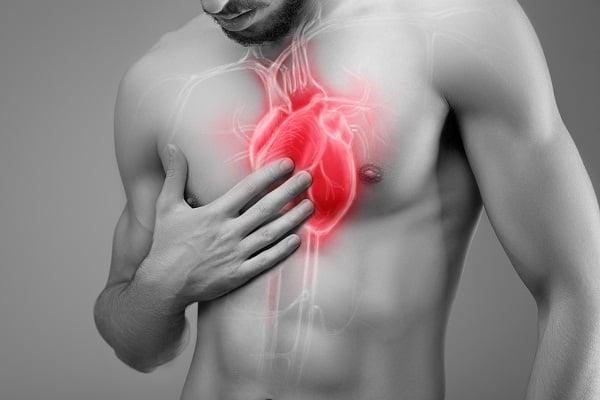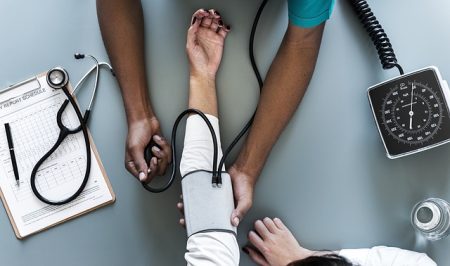Sharp Pain in Chest: What It Means and When Should You See a Doctor?
- Updated on: Jun 24, 2024
- 3 min Read
- Published on Apr 19, 2021


Is sharp chest pain a medical emergency? When to call a doctor?
Sharp pain in chest can be caused by anything from usual muscle pain to a heart attack and should never be ignored. Sometimes, it can be a medical emergency if it is due to a heart attack.
This is particularly important in the following cases:
- When you feel heavy, pressing in the chest
- When the pain radiates to other parts of your body – such as your arms, jaw, or back
- When the pain lasts longer than 10 minutes
- When other symptoms also appear is alongside such as breathlessness, nausea, vomiting, sweating, or coughing with blood
Who needs to be more careful about the pain in chest?
If you are at a high risk of coronary heart disease, the chest pain can be more a signal for a more dangerous complication for you. Risk factors for coronary heart disease are:
- Smoking
- Obesity
- High blood pressure (hypertension)
- Diabetes
- High cholesterol levels
If your chest pain subsides quickly without causing much problem, it is still good to see your doctor.
Chest pain can be due to heart problems
Chest pain is not always due to a heart problem, but sometimes it is a symptom of a problem with your heart. These are the following heart conditions that can trigger a sharp pain in the chest:
Angina
Angina is a condition where the blood supply to the muscles of the heart is restricted due to blockages in coronary arteries because of the underlying coronary artery disease.
Often the pain indicates angina if it is due to something wrong happening with your heart.
Heart attack
Heart attack is a condition where the blood supply to a part of your heart is suddenly blocked completely.
What is the difference between angina and heart attack?
Chest pain caused by angina tends to be triggered by stresses such as due to a physical activity or emotional burden, and improves with rest after a few minutes.
Symptoms of a heart attack tend to last more than 15 minutes. The pain occurs even at rest, and may be accompanied with sweating and vomiting.
If you’ve been diagnosed with angina previously, you can consume the tablet in case a sharp chest pain develops. If the first dose does not work, you can take a second dose after about 5 minutes.
Other common causes of chest pain
Chest pain is not always due to angina or heart attack. Sometimes, other factors can be responsible for it, such as:
- a strained muscle in the chest wall
- anxiety
- panic attack
- pneumonia
- pleurisy
- heart palpitation
- inflammation of the cartilage that joins the ribs to the breastbone
- gastro-oesophageal reflux disease (GORD)
- costochondritis
- Momentary chest discomfort, often experienced as a lightning bolt
Other possible but less common causes
- Mastitis
- Stomach ulcers
- Pulmonary embolism
- inflammation of the sac that surrounds your heart. This can cause a sudden, sharp and stabbing pain in the chest. This is called pericarditis.
- inflammation of the gallbladder, which can cause a sharp pain in the upper right side of your stomach that radiates toward your right shoulder. This is called acute cholecystitis.
- Shingles: It is a viral infection of a nerve and the skin around it. It causes painful rashes and blisters.











